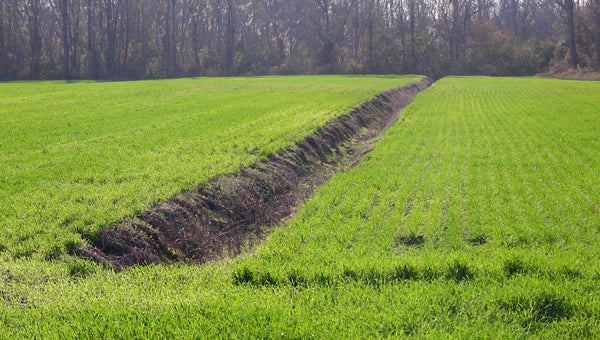Large modern farming practices detrimental to wildlife
By Fred Bonner
Columnist
Several years ago, a well-known administrator of a state fish and wildlife agency stated, “We aren’t really going to accomplish our goals of getting farmers to manage their farms for wildlife habitat until we get them to put a dollar value on the wildlife.”
That brings up an interesting question. How do you explain to farmers who do manage their farms for wildlife correctly that wildlife management organizations encourage a form of management that actually takes dollars out of the farmer’s pockets?
In a letter that Eastern North Carolina landowner and farmer Jett Ferebee recently sent to most North Carolina legislators and Wildlife Resources commissioners, the problem of conflicting wildlife management plans is explained.
In the letter, Ferebee states: “Each year I sit down and make sometimes painful economic decisions regarding the wildlife conservation efforts on my farm. With prime farm land values approaching $6,000 per acre and farm rents exceeding $200 per acre, the decision to take acres out of production in order to create much needed filter strips, fallow fields, windbreaks, perennial food plots, warm season grasses for nesting, etc. becomes very difficult. The Albemarle peninsula is dominated by large commercial farms. For the most part, the land is farmed ditch bank to ditch bank unless it has been declared “wetlands.” These wildlife habitat enhancements are critical in this region.
“On many of these large eastern NC farms such as Lux Farms, Mattamuskeet Ventures, Whitetail Farms and countless other smaller operations, sportsmen have stepped up to the plate and set aside valuable land in order to benefit wildlife in an otherwise barren environment due to intensive farming.
“I can assure you, as the red wolf program and it’s byproducts continue to decimate the wildlife on these farms, you will see less and less of these conservation practices continue. Sportsmen will no longer see the value to continue setting this land aside. I can only imagine the impact of this unintended consequence to North Carolina’s wildlife, in particular, its valued small game populations.
“I can also assure you, if you gentlemen do not step up to the plate, history will prove that the failed red wolf science project created the largest wildlife disaster to ever impact our state. Just look at how quickly the coyote problem got out of hand.
“I can hit this issue from so many different sides it is ridiculous. Where is the common sense? In the private sector, I would be broke if I did not act when common sense dictated.
“After 27 years and over $28,000,000, the red wolf program has gone from the initial four breeding pairs to 21 breeding pairs, and now down to seven or less breeding pairs. These three additional breeding pairs represent an investment by taxpayers of over $9,333,333 per breeding pair. The unfortunate flaw of the red wolf is hybridization, and will likely lead to its extinction in the wild unless new measures are taken.
“I have a plan to save the red wolf and North Carolina’s wildlife—a plan far superior to the nonsense going on now. I just need your help.”
– Jett Ferebee
When Jett Ferebee was later asked exactly what his plan was, he hesitated: “In the best interest of the red wolf and North Carolina’s wildlife, USFWS must recapture any remaining ‘pure’ red wolves as was previously done in Texas, Tennessee and Western North Carolina and relocate them to a coyote free location in order to save them from hybridization. This may be an island or unfortunately it may be the safety of captivity. Hybridization with coyotes can no longer be avoided and the wolves are doomed to repeat their ill fated history once again and at a cost that is much greater than the purity of the wolves, North Carolina’s native wildlife.”


